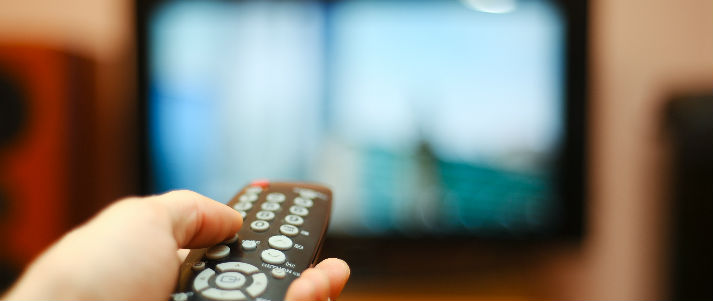TV Licence refund: how to claim yours
If you're not currently in your student accommodation but you're still paying for a TV Licence, you could be due a very nice refund. Here's how.

Credit: Real Moment (foreground), BrAt82 and Lavrentsov Dmitrii (background) – Shutterstock
Paying your annual TV Licence in one lump sum of £169.50 is not fun. And this is especially true for students who often only need one for nine or 10 months.
But, the good news is, you can actually apply for a TV Licence refund for the months you're not using it.
Better yet, it's simple to claim the money back you're owed. Read on to find out how to apply for a refund, and how much you could be refunded for each month that you're not using a TV Licence.
What's in this guide?
Do you need a TV Licence?
You need a TV Licence if you watch programmes live from any source. This includes TVs, laptops, tablets, mobile phones and desktop computers.
Previously, you didn't need a licence if you only watched programmes on catch-up TV services like BBC iPlayer or All4 (as long as you watched them at least an hour after they've been broadcast).
But, as of September 2016, you need a TV Licence to watch BBC iPlayer as well. For any other catch-up services like ITV Hub or All 4, you still don't need a TV Licence. Just make sure you don't use them to watch live TV if you don't have a licence.
There's also a small but crucial loophole that means a lot of students don't have to pay to watch iPlayer. We've got a full guide on the TV licensing loophole, where we explain how it works.
Do you need a TV Licence to watch Netflix?
On the whole, if you only watch on-demand TV services like Netflix, NOW and Amazon Prime Video, you don't need to pay for a TV Licence. But, if you're streaming or watching live programmes on them, you would need a licence.
The same applies to watching videos on other online platforms like YouTube. You would only need a TV Licence to use video-streaming sites like these if you are streaming or watching live programmes on them.
Ultimately, if you watch live TV on any channel or online streaming service, you will need a TV Licence. Again, though, this loophole still applies.
Does your parents' TV Licence cover you at university?
There is a little-known loophole that means, in some circumstances, students are covered by their parents' TV Licence and won't need to buy their own.
But this only applies if you're just watching catch-up TV (including BBC iPlayer) on a device that is not plugged into mains electricity. Weird, we know.
Check out our guide to the TV licensing loophole for more information.
Do you need a TV Licence if you live in a shared house?
If you live in a shared house at university, here are the main rules on whether you can share a TV Licence across the household, or if each housemate needs a separate one:
- If you have a joint tenancy agreement, you will only need one TV Licence for the whole house.
- If you have an individual tenancy agreement for each room, each housemate will have to buy their own TV Licence.
How to successfully claim a TV Licence refund

Credit: Concept Photo – Shutterstock
It's surprising how many students don't take advantage of the fact that TV Licence refunds could be available to them. We suspect that's because TV Licensing doesn't exactly shout about it, so it's an easy trick to miss.
You can claim a monthly refund of your TV Licence fee for periods that you're not using it. As long as there's at least one month left on your licence that you're not going to use, you should be able to get some cash back.
Discounts should work out at roughly £14 per month. However, TV Licensing states that they will calculate how much you'll get back on a case-by-case basis.
If you leave your student accommodation straight after exam time, though, you could see quite a big return. Say you move out at the end of May and your licence doesn't expire until September – that's a three-month discount on your TV Licence and could see a return of about £42. Not bad!
You may have to split it a few ways between you and your housemates, but every penny counts.
Claiming your TV Licence refund

In order to qualify for a TV Licence refund, you need the following:
- At least one complete month or more left on your licence, or a licence that expired within the past two years.
- Evidence that you'll no longer need it. For example, this could be a tenancy agreement that shows you're leaving the property before the licence runs out. Or, it could be confirmation of your university attendance that shows term dates (full list of evidence options).
We've heard stories of students making unsuccessful claims as, although they've moved out, their tenancy agreement was still running. We contacted TV Licensing to ask about this. They confirmed that they would accept an official email from a university, clarifying that a student has left.
So, if you've got everything you need, you're good to go! However, you can only apply for a refund up to 14 days before you no longer need the licence. Any earlier and your application will be denied.
Once you've submitted the form, the money should be with you within 21 days.
What happens if you don't pay your TV Licence fee?
If you watch live TV in any form without paying your licence, you're breaking the TV Licensing rules, and therefore the law.
If you try to sneak by without paying, you could very easily end up in court facing a fine of up to £1,000. Ouch!
For more tips, check out our guide to saving money on your bills.








